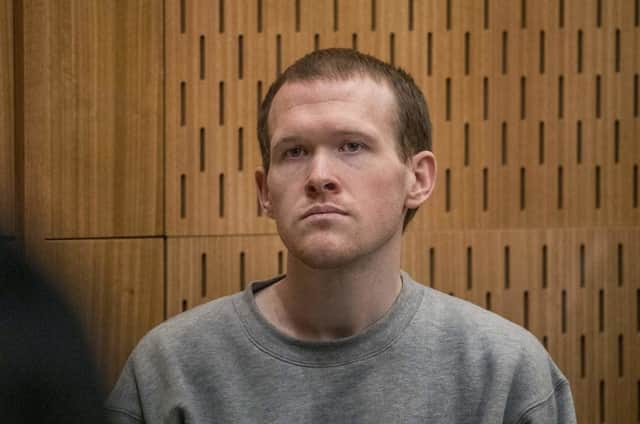Christchurch mosque killer Brenton Tarrant gets life without parole - what it means


A terrorist who killed 51 people at two mosques in Christchurch, New Zealand in March 2019, has been sentenced to serve life in jail without parole.
The ruling marks the first time in the country’s history that such a sentence has been imposed, and is the longest prison term handed out in New Zealand’s legal history.
Who is Brenton Tarrant?
Advertisement
Hide AdAdvertisement
Hide AdWhite supremacist Brenton Tarrant admitted to the murder of 51 people, attempted murder of a further 40 people and one charge of terrorism.
The 29-year-old was born in the Australian state of New South Wales and has been described as an “extremist, right-wing terrorist”.
His father died in 2010, after which he quit his job and went on to travel through parts of Asia and Europe, before moving to New Zealand in 2017.
It was during this time he began planning his attacks against the Muslim community, and was active on fringe online forums, posting a 74-page “manifesto” online prior to his attack.
Advertisement
Hide AdAdvertisement
Hide AdIn this he said he chose firearms for the attack for the effect it would have social discourse, the extra media coverage it would generate, and the effect it could cause on the politics of the United States, according to a New York Times report.
He added that he hoped to create conflict regarding the ownership of firearms “in order to further the social, cultural, political and racial divide”.
Mr Tarrant also said that he would be “quickly forgotten” after the attack, which he said he didn’t mind.
What was he charged with?
The Australian initially denied all charges against him but later pleaded guilty to the offences in court on Thursday (27 August), after a four-day hearing.
Advertisement
Hide AdAdvertisement
Hide AdMr Tarrant was unrepresented during the sentencing proceedings, but he did use a stand-by lawyer to inform the judge he did “not oppose the application that he should be sentenced to the term of life without parole”.
Justice Cameron Mander delivered the sentence after the hearing which saw more than 90 victims face Tarrant in court, detailing the physical, emotional and mental scars his crimes have inflicted on their lives.
The judge described his actions as “inhumane” and said he “showed no mercy” for the shooting attack that took place last March, which Tarrant livestreamed on Facebook.
He said: “You showed no mercy. It was brutal and beyond callous - your actions were inhumane.
Advertisement
Hide AdAdvertisement
Hide Ad"As far as I am able to gauge you are empty of any empathy to your victims.”
Members of the public gathered outside the courthouse during the morning of the hearing, with many holding up signs depicting large, red hearts, including some reading: “We are one.”
What does life without parole mean?
Justice Mander said that the crimes of the 29-year-old were “so wicked”, that a life sentence “will not exhaust the requirements of punishment”.
A life sentence without parole means that the offender will not be given the opportunity to leave prison after serving only a portion of their total sentence.
Advertisement
Hide AdAdvertisement
Hide AdSuch life sentences are reserved only for the “very worst murders”.
Judge Mander told Mr Tarrant: “You have offered no apology or public acknowledgement of the harms you have caused.
“While I appreciate that you have forsaken the opportunity to use these proceedings as a platform, you appear neither contrite nor ashamed.”
In the UK, a whole life order requires offenders to serve their time in jail without the possibility of parole, but these can only be issued to those who committed crimes when they were over the age of 21. Ian Brady, Ian Huntley and Harold Shipman are among the prisoners in the UK who have been handed such a sentence.
Advertisement
Hide AdAdvertisement
Hide AdHowever, whole life orders do not always mean prisoners will be kept behind bars until death, as the Home Secretary can grant release in exceptional circumstances. This could be due to ill health or because the prisoner is of a great age. In other cases, the Court of Appeal can also over-turn such orders.